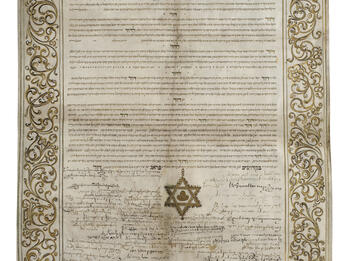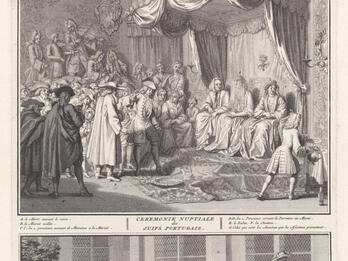Moses Yerushalmi
Moses ben Henich Yerushalmi Altchuler of Prague was famous for his Yiddish ethical work Der brantshpigl (The Burning Mirror, 1596), a revision of his earlier Hebrew work of the same name, Mar’ah sorefet (1577). It was the first comprehensive ethical (musar) treatise in Yiddish, including both practical and spiritual guidance, and offers insight into contemporary Jewish life and rituals. Despite claiming to address men and women alike (“women and men like women”), Der brantshpigl focuses extensively on the role of women and exemplary female behavior, emphasizing gender differences and discussing women’s duties extensively. Der brantshpigl became extremely popular, particularly among German Jewry: three editions were published in the author’s lifetime alone, and it was endorsed by countless rabbis. Other authors also composed imitation works, such as Tsukht shpigl (Mirror of Modesty) and Kleyn brantshpigl (Small Burning Mirror). Among Polish Jewry, however, it was displaced as the most popular musar text by Isaac ben Eliyakim’s Lev Tov (A Good Heart; ca. 1620).



